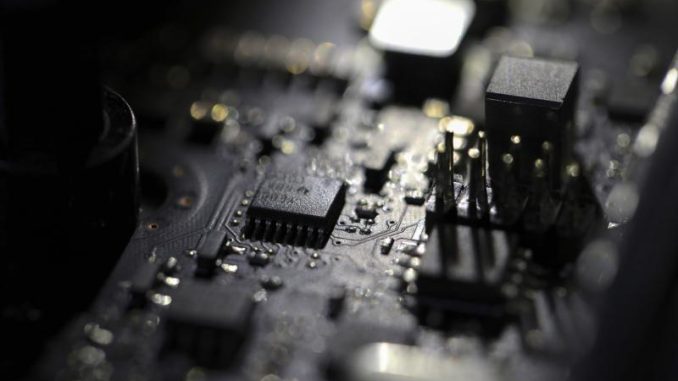

FILE – The inside of a computer is seen on Feb 23, 2019, in Jersey City, N.J. (AP Photo/Jenny Kane, File)
OAN Newsroom
UPDATED 10:37 AM PT – Thursday, July 28, 2022
The Senate passed the multi-billion dollar CHIPS Act in a bipartisan vote aimed at growing America’s semiconductor industry. In a 64-to-33 decision Wednesday, the upper chamber approved the bill, which would give $52 billion to companies that produce semi-conductor chips.
The proposal also offers a tax credit to encourage those companies to boost production in the US. Senate Majority Leader Chuck Schumer (D-N.Y.) asserted that American companies will need government assistance to keep up with foreign competitors. Meanwhile, Sen. John Cornyn (R-Texas) highlighted the legislation as a response to China’s assertive position in the semi-conductor market.
‘Bad Day For President Xi And CCP’: Cornyn Applauds Investments In Semic… https://t.co/CTuvwR1qR5 via @YouTube
— Senator John Cornyn (@JohnCornyn) July 28, 2022
Seventy-five percent of the world’s semi-conductors are produced in East Asia with 90 percent of the world’s most advanced semi-conductors being manufactured in Taiwan. If China were to seize the island, which it believes is a territory of the People’s Republic, the US would be dependent on its greatest geopolitical rival for crucial technological components.
A number of senators, however, accused the bill proponents of using a foreign policy crisis to line the pockets of large corporations. In addition to the $52 billion in subsidies, the legislation allows for an additional $24 billion in tax incentives and provisions as well as nearly $170 billion to fund technology and research over the next five years.
When accounting for all the bill’s provisions, its total price tag comes out to $280 billion. Sen. Ron Johnson (R-Wis.) called the legislation highly irresponsible, while asserting Congress is fueling inflation by blowing out spending when there is “more than enough money sloshing around in the economy.”
Additionally, Sen. Bernie Sanders (D-Vt.) berated the upper chamber for writing a blank check to the microchip industry at the expense of the American public. Sanders pointed to corporate interests rather than the “China threat” as the inspiration for the CHIPS Act.
Sen. Mike Lee (R-Utah) also chimed in to proclaim many of the subsidies’ recipients may use American dollars to manufacture the products abroad. Nonetheless, the bill is now headed to the House of Representatives, where Speaker Nancy Pelosi (D-Calif.) expects the proposal to pass.
My statement on the CHIPS Act: pic.twitter.com/AlbHa7FFjo
— Mike Lee (@SenMikeLee) July 27, 2022






Be the first to comment